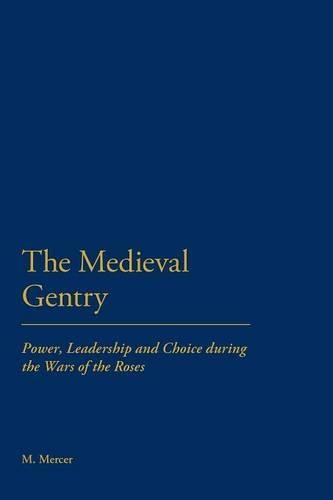
The Medieval Gentry: Power, Leadership and Choice during the Wars of the Roses
(Paperback, NIPPOD)
Available Formats
Publishing Details
The Medieval Gentry: Power, Leadership and Choice during the Wars of the Roses
By (Author) Malcolm Mercer
Continuum Publishing Corporation
Continuum Publishing Corporation
19th July 2012
NIPPOD
United States
Classifications
Tertiary Education
Non Fiction
Medieval warfare (predating gunpowder warfare)
Social and cultural history
942.04
Physical Properties
Paperback
184
Width 156mm, Height 234mm
264g
Description
What were the principal factors that influenced and shaped the behaviour of the gentry during the Wars of the Roses, from 1455 at the first battle of St Albans to the final encounter at Stoke in 1487 It was the gentry who were the natural leaders within their communities and the nobility relied upon them for military manpower, and to act as their mouthpieces at local levels. Consequently, the gentry's ability to persuade their kinsmen and tenants to act in a particular way was crucial, especially their capacity to raise and lead men into battle. This was a critical factor in the outcome of the Lancastrian and Yorkist campaigns. The book begins by outlining how individuals are understood to make decisions and the discussion then moves to the late medieval gentry and the characteristics that define them as a social formation. A definition of the gentry will also be offered. The remainder of the book assesses the relationship between the gentry and the political and social world of the late middle ages.
Reviews
... a brave attempt to tackle an interesting question: it is clearly written and it belongs to that school of thought which, quite rightly, rejects the view that late medieval retainers were 'Pavlovian dogs, jumping at the chance of a fee'. * English Historical Review, vol 127, no 528, October 2012 *
Author Bio
Malcolm Mercer worked at The National Archives, London from 1997 to 2006 as senior medieval records specialist, and then as senior research archivist at Canterbury Cathedral Archives. He is currently curator of Tower history at the Royal Armouries Museum.
